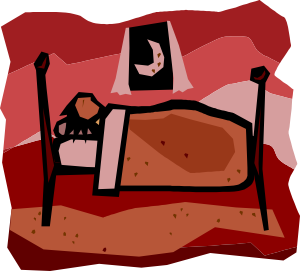Only those living in neighborhoods that are part of gang territory can understand the challenge of getting a good night’s sleep. Gun shots going off at all hours aren’t uncommon, residents have told me, and after sundown road racing and squealing tires break the quiet. For many, anxiety never fully recedes that a stray bullet will strike their home or someone will break in, even if they have an alarm system.
A novel new study, reported in the The Stony Brook Statesman, shows just how hard it is getting those recommended 8 hours. Dr. Lauren Hale, associate professor of Preventive Medicine at Stony Brook, analyzed the relationship between sleep patterns and economic, social and health disparities.
Hale found that the more socially disadvantaged an individual is, in terms of income and education, the more likely that person will report a sleeping problem. She compared African-Americans and Caucasians.
Blacks are twice as likely to be short sleepers when compared to their white counterparts. A 2007 Chicago-based study similarly found that African-American men get one less hour of sleep per night compared to white males.
High school graduates are 40 percent more likely to be short sleepers, compared to college graduates, the study reported.
Losing one hour of sleep, night after night, has a substantial health effect. The National Institutes of Health said sleep deficiency is linked to many chronic health problems, such as heart disease, high blood pressure, diabetes, stroke, obesity and depression. It also leads to more injuries and accidents.
The NIH gives strategies for getting a full night’s rest, although the list doesn’t address the unique challenges faced by these neighborhoods.


